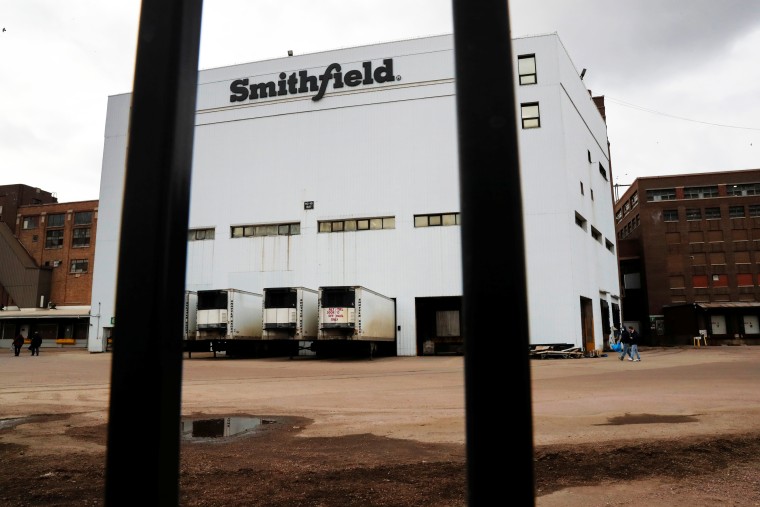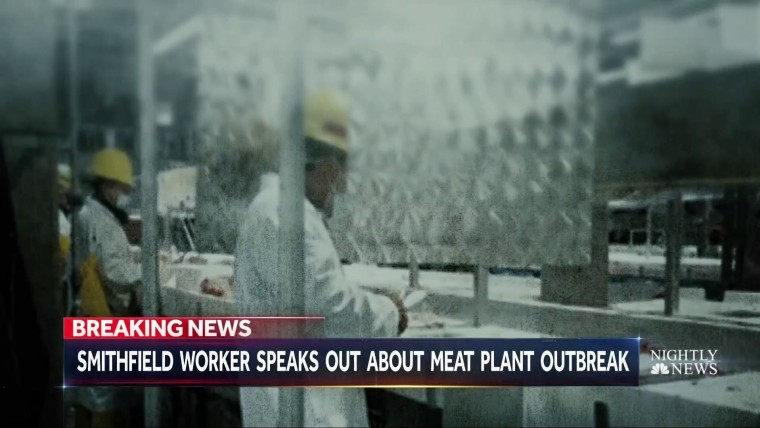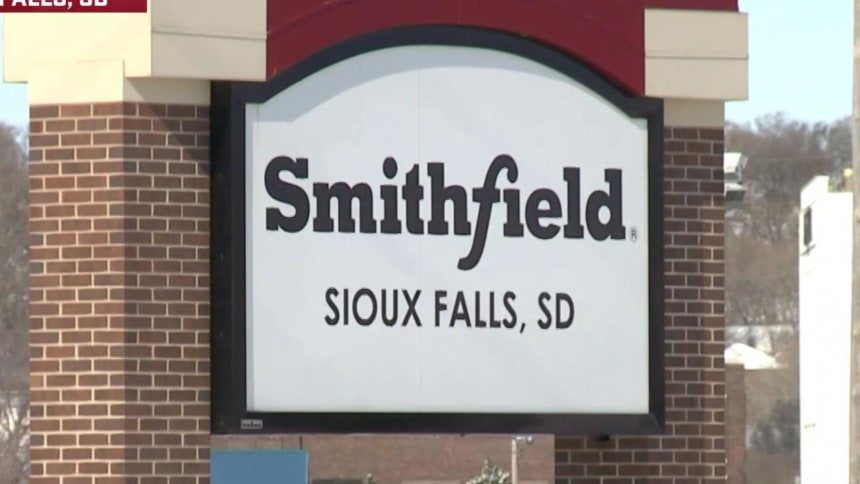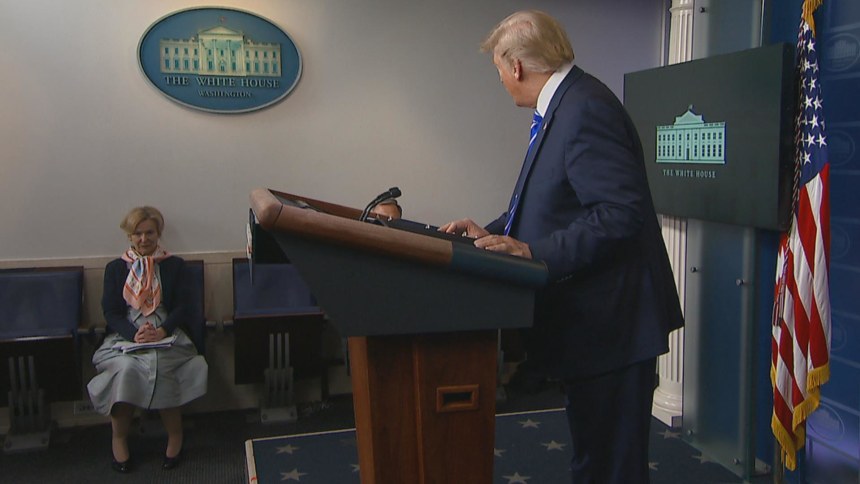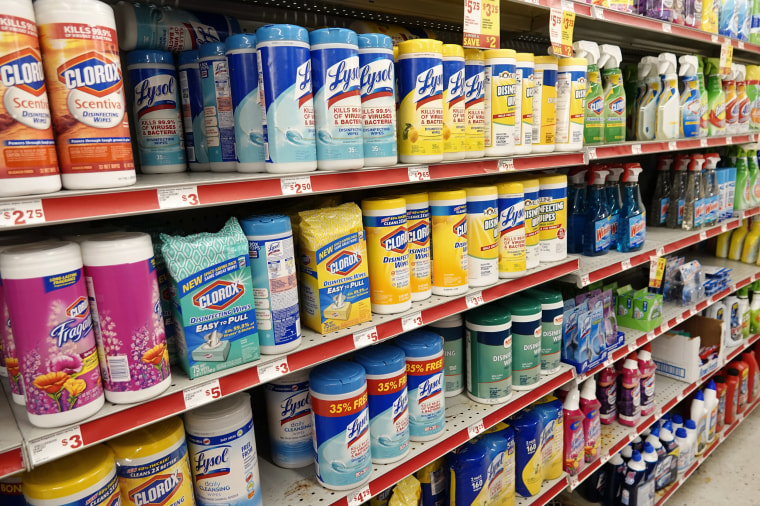Clearly, the president will never cease his efforts to scapegoat immigrants — even during our nation’s darkest hour.

An undocumented Honduran immigrant, 4, sick and isolated with his family for the last two weeks, stands inside his bedroom window on March 30, 2020 in Mineola, New York. The nine immigrants who share a Long Island rental house self-quarantined after one became ill with fever, and the rest quickly followed. Most are largely recovered but never received tests for COVID-19. The coronavirus pandemic has been especially difficult for undocumented communities, who lack unemployment protections, health insurance and fear deportation if authorities know their whereabouts.John Moore / Getty Images
April 24, 2020 By María Teresa Kumar, president and CEO of Voto Latino
America’s pandemic president continues his reign of ineptitude and cruelty. On Wednesday, President Donald Trump signed an executive order suspending the issuing of new green cards for people immigrating to the United States. After initially implying on Twitter that the order would broadly ban all immigration, he clarified that the order would not stop temporary work visas from being granted to foreign laborers.
In light of the attack from the Invisible Enemy, as well as the need to protect the jobs of our GREAT American Citizens, I will be signing an Executive Order to temporarily suspend immigration into the United States!— Donald J. Trump (@realDonaldTrump) April 21, 2020
At the same time, Trump's administration has given Americans a series of mixed messages about when the country should reopen. At least some in the White House have called out public health as a reason for the new immigration policy. National security adviser Robert O’Brien, for example, told Fox News that “We’re trying to do everything, the president’s trying to do everything he can to put the health of the American people first during this crisis,” adding that the executive order was "one step."
In reality, this latest executive order should be tossed on the garbage heap with all of Trump’s other travel bans. Either the virus is not serious enough to continue mass nationwide social distancing or it is so serious that there is an immediate need to stop people from entering the country. It cannot be both. Despite the specter of the coronavirus, this is just another attempt to stop black, brown and Muslim immigrants from entering the country — all while feeding his xenophobic base.


Trump’s softening of the ban's stance on temporary workers is further proof that the president does not actually believe his own statements about immigration and jobs. It is more evidence that he views immigrants as disposable, cheap labor — but not as people who could or should become part of our nation. "This action is not only an attempt to divert attention away from Trump's failure to stop the spread of the coronavirus and save lives, but an authoritarian-like move to take advantage of a crisis and advance his anti-immigrant agenda,” noted Rep. Joaquin Castro, D-Texas, chairman of the Congressional Hispanic Caucus.
This action is not only an attempt to divert attention away from Trump’s failure to stop the spread of the coronavirus and save lives, but an authoritarian-like move to take advantage of a crisis and advance his anti-immigrant agenda. We must come together to reject his division. https://t.co/wYEai4rYVY— Joaquin Castro (@JoaquinCastrotx) April 21, 2020
The distinction lies in the path of opportunity for temporary workers and green card holders. A person with a green card can sponsor family members for their own green cards, work in a field and occupation of their choosing, leave and re-enter the United States much more easily, contribute to political campaigns, and, of course, apply for citizenship after five years. In other words, a green card provides a real opportunity to become a productive part of this country.
Temporary work visas, on the other hand, only allow people to come into the country to work in a specific occupation, for a fixed amount of time, without the ability to exit and re-enter the country or take part in civic life.
But there’s more at stake than green cards. Trump's executive order is merely the latest example of how this administration is ignoring the needs of Latinx Americans and immigrants at a time when the community's collective health and wealth has perhaps never been more at risk.
Undocumented immigrants pay well over $27 billion dollars in state and federal taxes, but they are not eligible for Coronavirus Aid, Relief and Economic Security (CARES) Act stimulus money; 49 percent of all Latinx households have either lost jobs or have had to take a pay cut. Yet, about a fifth of Latinx workers are excluded from the CARES Act due to their immigration status. Similarly, the 16.7 million people living in mixed-status households, half of whom are U.S.-born or naturalized, received exactly zero relief money from the CARES Act. In California, Democratic Gov. Gavin Newsom has created a $125 million relief fund for undocumented residents. That’s definitely a start, but it’s only enough money to cover a small fraction of those who need it.
Clearly, the president will not stop trying to scapegoat immigrants — even during our nation’s darkest hour. This is despite needing their specialized labor, and happily using it in his own businesses. Indeed, Trump has resurrected his immigrant-bashing each time he is backed into a corner and will likely continue to do so until he is voted out of office. After all, it’s easy red meat for his base and a way to deflect attention away from his incompetence.
Trump began his campaign in 2015 by calling Latinx people rapists, drug dealers and criminals. He uses anti-immigrant policy and rhetoric carelessly for political expediency. It’s why he has only proposed building a wall along one of our borders. And, it is why he continues to call the coronavirus, “the Chinese virus.”
The president has never been shy about how he feels about immigrants from “shithole” countries, and his rhetoric now only reinforces the callousness and hypocrisy that has defined his presidency. He fails to understand that America’s essence and greatness is because of the very immigrants he dehumanizes. According to analysis by the Migration Policy Institute, immigrants make up 25 percent of health care professionals, 22 percent of food service workers, 34 percent of public transportation workers, and, in California alone, 69 percent of agricultural workers.
This year, for the first time, 1 in 10 eligible voters are naturalized citizens. Come January 2021, we can only hope that the economy has fully recovered from this pandemic. But, by that time, Donald Trump should be out of a job.
Trump began his campaign in 2015 by calling Latinx people rapists, drug dealers and criminals. He uses anti-immigrant policy and rhetoric carelessly for political expediency. It’s why he has only proposed building a wall along one of our borders. And, it is why he continues to call the coronavirus, “the Chinese virus.”
The president has never been shy about how he feels about immigrants from “shithole” countries, and his rhetoric now only reinforces the callousness and hypocrisy that has defined his presidency. He fails to understand that America’s essence and greatness is because of the very immigrants he dehumanizes. According to analysis by the Migration Policy Institute, immigrants make up 25 percent of health care professionals, 22 percent of food service workers, 34 percent of public transportation workers, and, in California alone, 69 percent of agricultural workers.
This year, for the first time, 1 in 10 eligible voters are naturalized citizens. Come January 2021, we can only hope that the economy has fully recovered from this pandemic. But, by that time, Donald Trump should be out of a job.
---30---
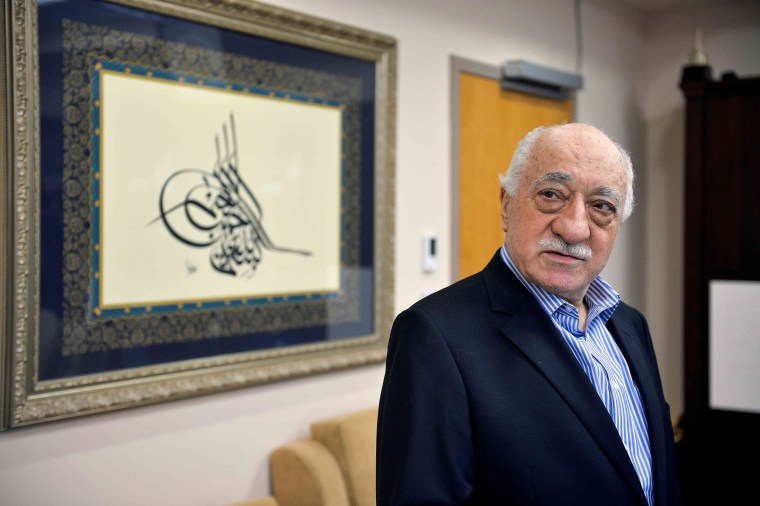
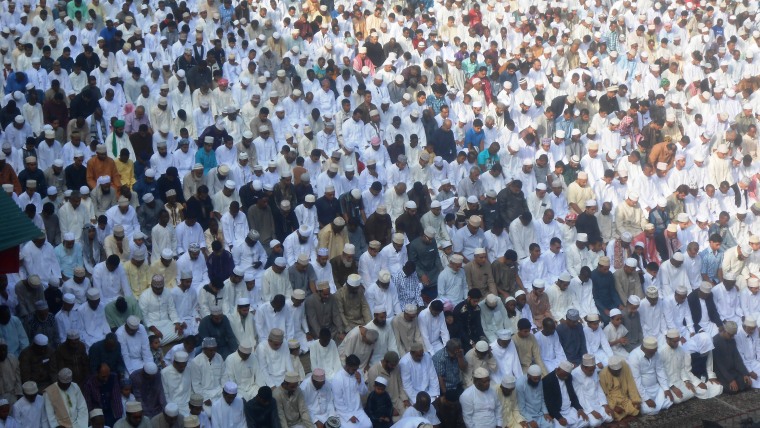
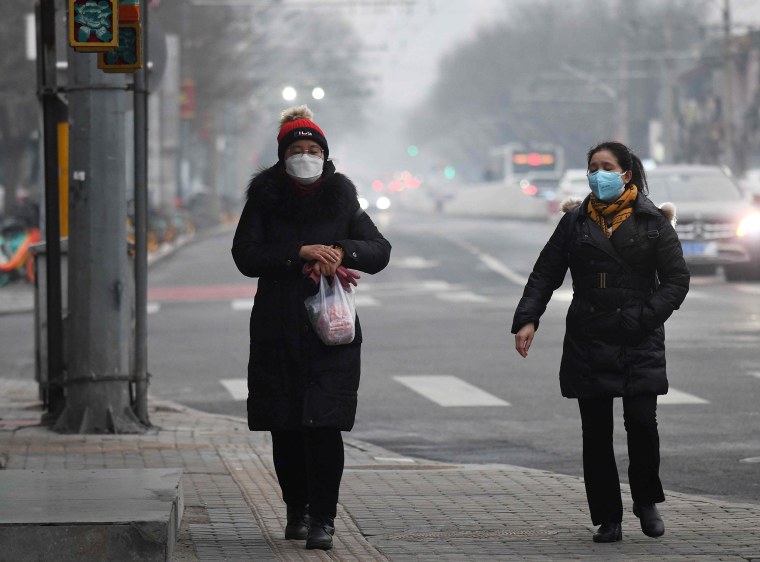


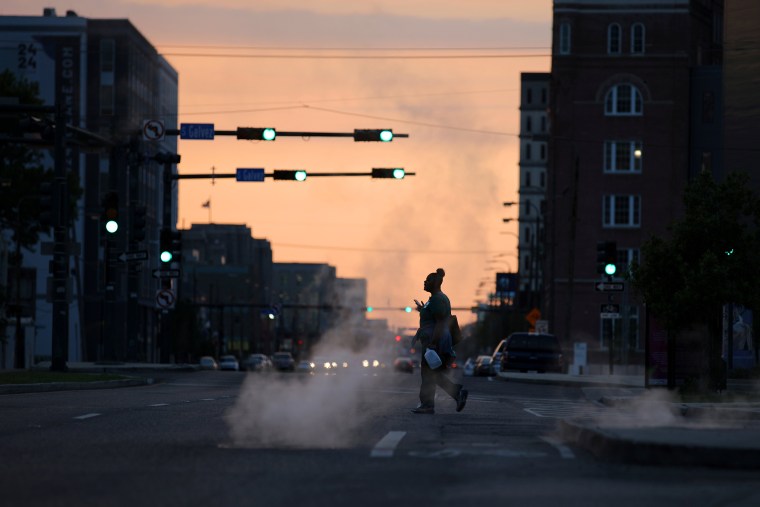
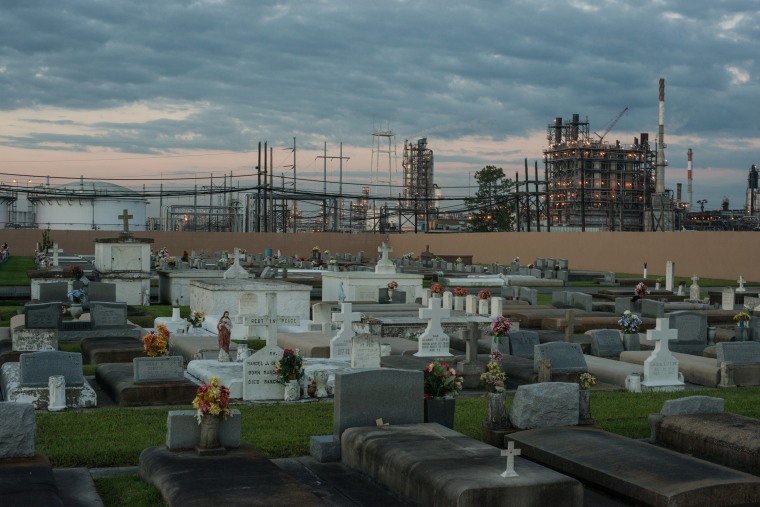
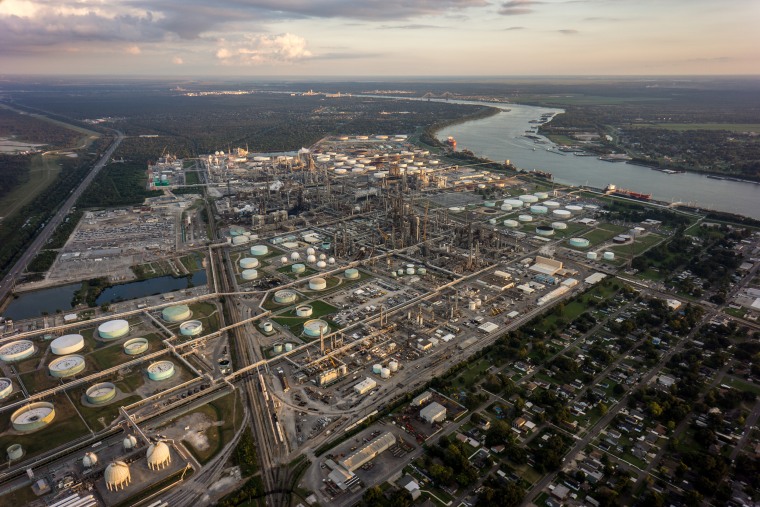


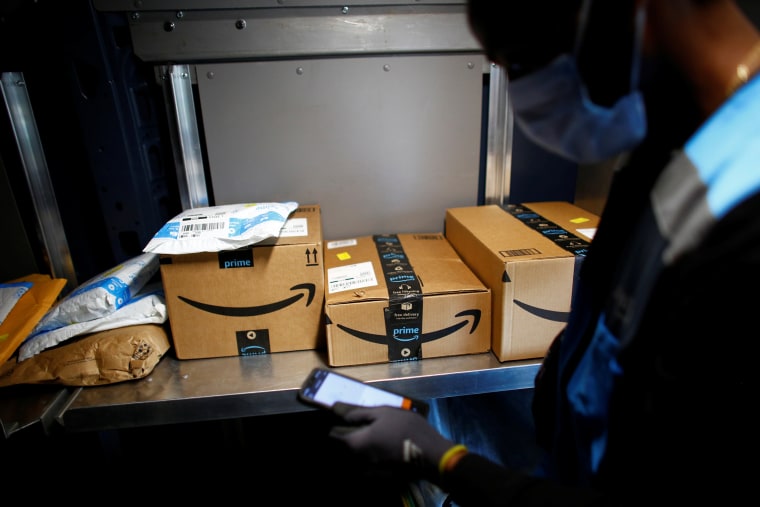
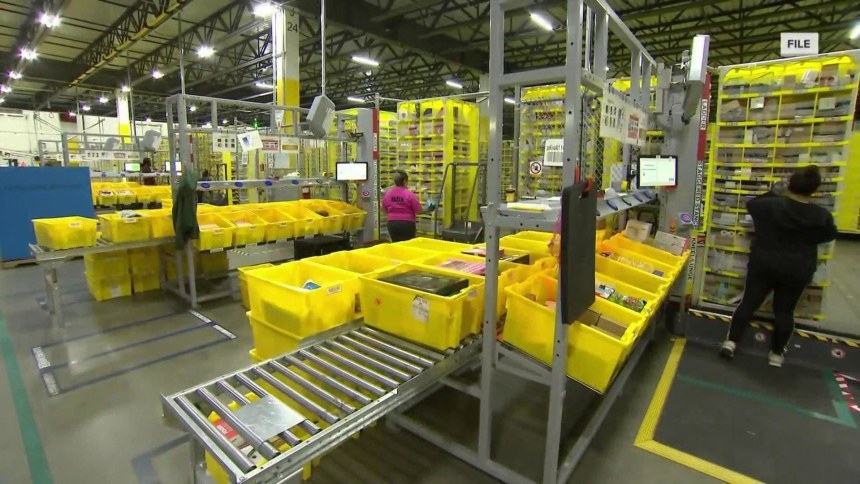

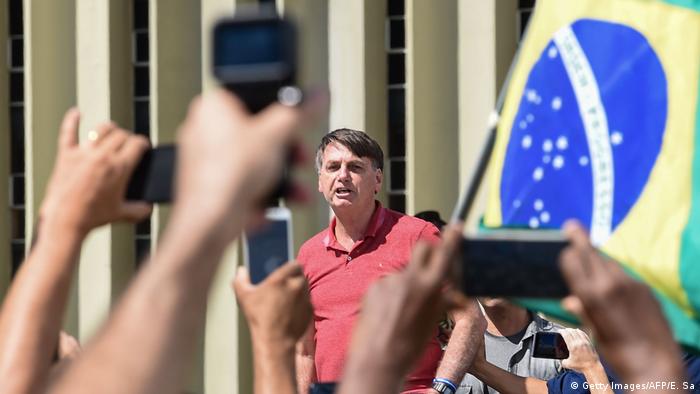
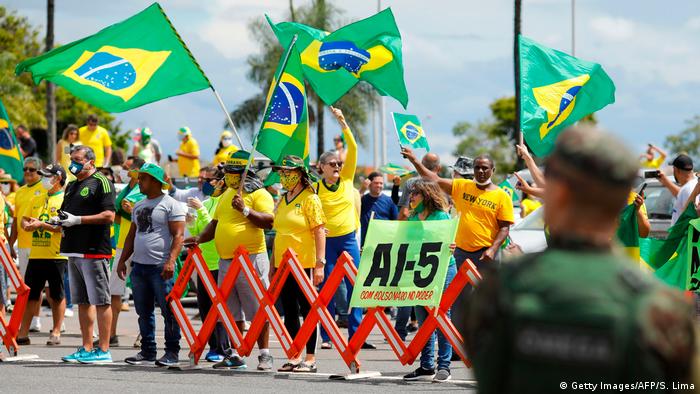


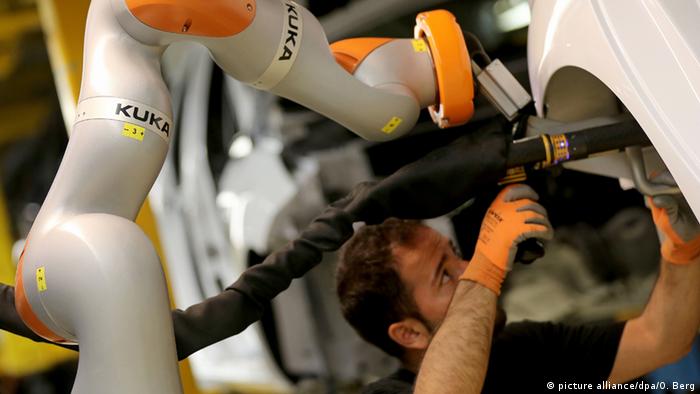


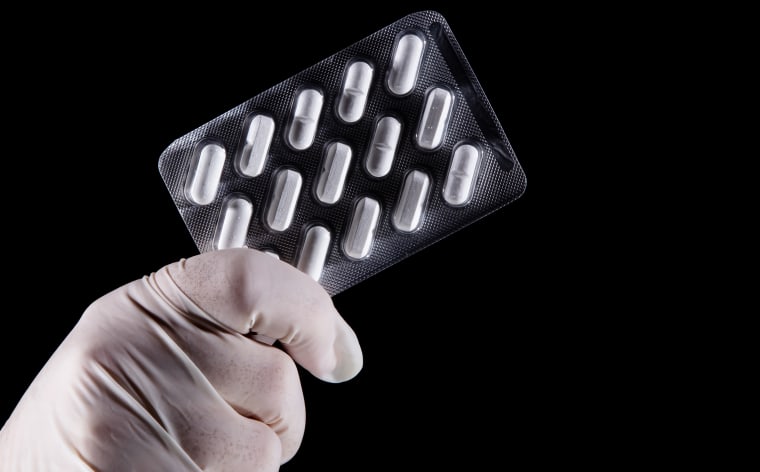


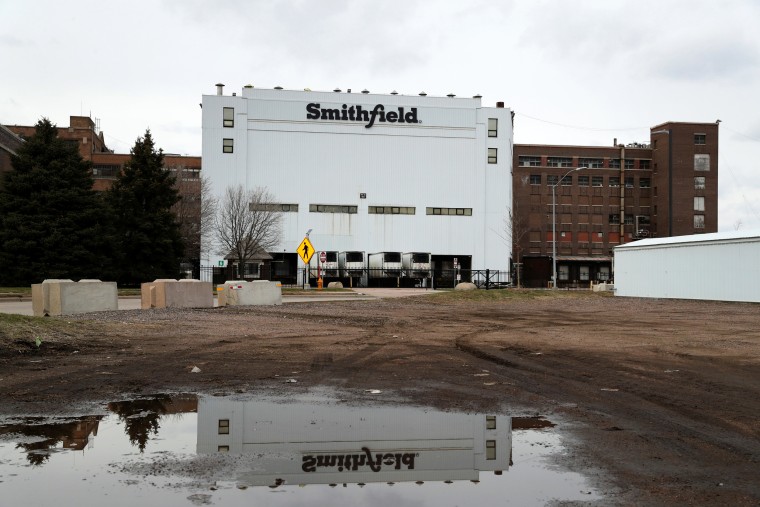 The closed Smithfield Foods pork plant is seen as the spread of the coronavirus disease (COVID-19) continues, in Sioux Falls, S.D., on April 16, 2020.Shannon Stapleton / REUTERS
The closed Smithfield Foods pork plant is seen as the spread of the coronavirus disease (COVID-19) continues, in Sioux Falls, S.D., on April 16, 2020.Shannon Stapleton / REUTERS
